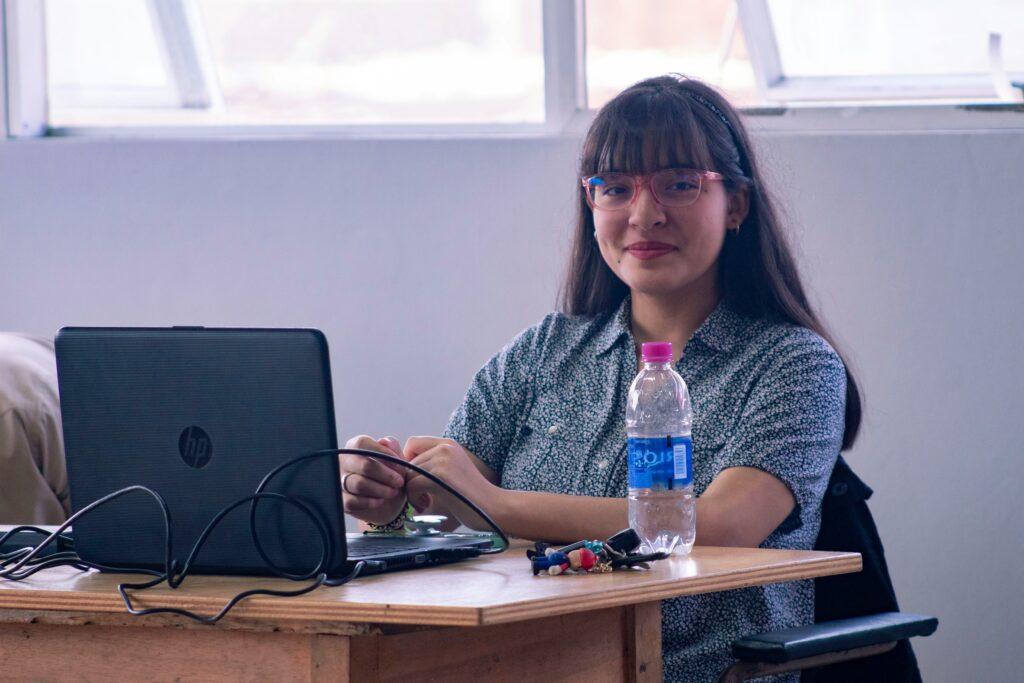Latinas In Tech Are Powering AI’s Future And Demanding Accountability

Latinas in tech aren’t just showing up — they’re reshaping the future of AI. Whether launching startups, leading policy talks, or building community from the ground up, these women are weaving their lived experiences into every layer of innovation. They’re not just coding or creating — they’re calling for ethical AI, real accountability, and equity across the board. Their presence proves that when Latinas lead in tech, the entire AI ecosystem gets smarter, more inclusive, and undeniably stronger.
One clear way Latinas are leading is by building AI tools that prioritize fairness and representation. Laura I. Gómez, an early tech disrupter and founder of Atipica, created a recruitment platform that combines artificial and human intelligence to reduce bias in hiring. Having worked at Google, Twitter, and YouTube, Gómez saw firsthand how tech companies often overlooked gaps in diversity and inclusion efforts.

“I grew up in the heart of the San Francisco Bay area… which happens to be the home of Silicon Valley. And so, having grown up in Silicon Valley, I was used to access to computers at school. Early on, I was learning English and computers,” she shared in an interview with Milwaukee Film. “My story is that I am an immigrant. My birthplace is in Mexico but as a bi-cultural immigrant who grew up in the United States. My hometown and my country is this. It is Redwood City. It is the United States. That’s why it’s important to hold accountable how we’re treating and making sure that all types of populations are included in all types of systems including technology, including science, including financial and professional opportunities.”
When asked about what prompted the founding of the company, she shared that it came from a frustrating experience while speaking on a panel that included the Rev. Jesse Jackson and several tech executives.
“It was [about] the pipeline issue—always talking about, ‘Well, there aren’t enough, you know, people of color or women graduating with these degrees or etc.,” she said.
“[Atipica] definitely was something where you’re using AI for good,” she said. “You’re using AI to understand what’s happening in your pipeline. Maybe I’m applying to a corporation, and I’m applying to this job, but somewhere else in that corporation, there’s the right job for me. Why can’t AI make that match and then reduce the biases? Don’t say, ‘It’s Laura Gomez.’ Don’t say where I live, because those are all biases. Don’t say, like, the school I went to. Just say, ‘This person is a match. You should talk to them.’“
Latinas In Tech Advocating For Inclusion And Community AI Literacy
Latinas are also expanding inclusive education and community networks in AI. Gabriela de Queiroz, director of AI at Microsoft, co-founded R-Ladies Global, a worldwide organization that promotes gender diversity in the R programming language community. She also leads AI Inclusive, which provides support and visibility for underrepresented groups in machine learning and data science. Through her work, thousands of women and non-binary individuals now have access to resources and networks once out of reach—proving that community can be as powerful as code when it comes to building tech that works for everyone.
Another key area of leadership is public AI literacy and advocacy for communities of color. Susan Gonzales, CEO of the nonprofit AIandYou, is working to ensure that marginalized communities not only understand how AI will shape their futures—but have a voice in how it’s built. Her organization has launched compelling campaigns like using AI misinformation to fight AI misinformation, and she co-authored “A Blueprint for Equity and Inclusion in AI”, released by the World Economic Forum.
“I first learned about AI when I was at Facebook about eight years ago,” she shared in a 2024 interview. “Believe it or not, this new technology was allowing the blind community to access a platform. I thought that was really cool, and I just was very curious. And so over the years, I just kept following it. I’m not an engineer. I was on the policy side of things. When I left the company about over four years ago, I realized there was a chasm between the AI ecosystem and marginalized communities, pretty much everybody else.”
Holding Companies Accountable In A Troubling DEI Landscape
Across the tech landscape, Latina entrepreneurs and researchers are pushing the field forward while holding it accountable. Gemma Galdón-Clavell, founder of Eticas.ai, is building a framework for auditing algorithms to ensure they operate transparently and ethically—especially in government and public infrastructure. Daniela Blanco, CEO of Sunthetics, is applying AI to chemical engineering to reduce reliance on fossil fuels, using machine learning to create sustainable solutions.
Yovana Rosales, founder of Ai.Latina, is using AI to empower Latina entrepreneurs, showing them how to integrate emerging tech into their businesses with confidence and creativity. Jessica Santana, co-founder and CEO of America on Tech (formerly Brooklyn On Tech), has advocated for tech literacy via the national nonprofit preparing the next generation of technology leaders from underestimated communities through mentorship, training, and scholarships.
The organization recently launched an AI advisory board. “The launch of our AI Advisory Council and the transformation of TECH360 to an AI-focused program represent major milestones in our mission to prepare the next generation of technology leaders from underestimated communities,” she said in a news release. “By ensuring that AI education is accessible to all, we are fostering a new generation of tech leaders who will shape the industry’s future.”
Human-Centered AI Creating Opportunity Where It’s Needed Most
Other leaders include Saiph Savage, whose research on human-AI collaboration is being used to uplift rural and underserved communities across Latin America, and Ariel Lopez, founder of Knac, whose platform is tackling hiring discrimination using smart, inclusive technology.
Together, these women, along with many others, are not just participating in the future of AI—they’re actively changing the landscape and ensuriing that technology is used to empower not exploit. Through innovation, advocacy, and education, they are proving that accountability and excellence can, and must, coexist in the development of emerging technologies. As AI continues to evolve, their leadership ensures it does so in a way that reflects and respects the full diversity of the world it aims to serve.






